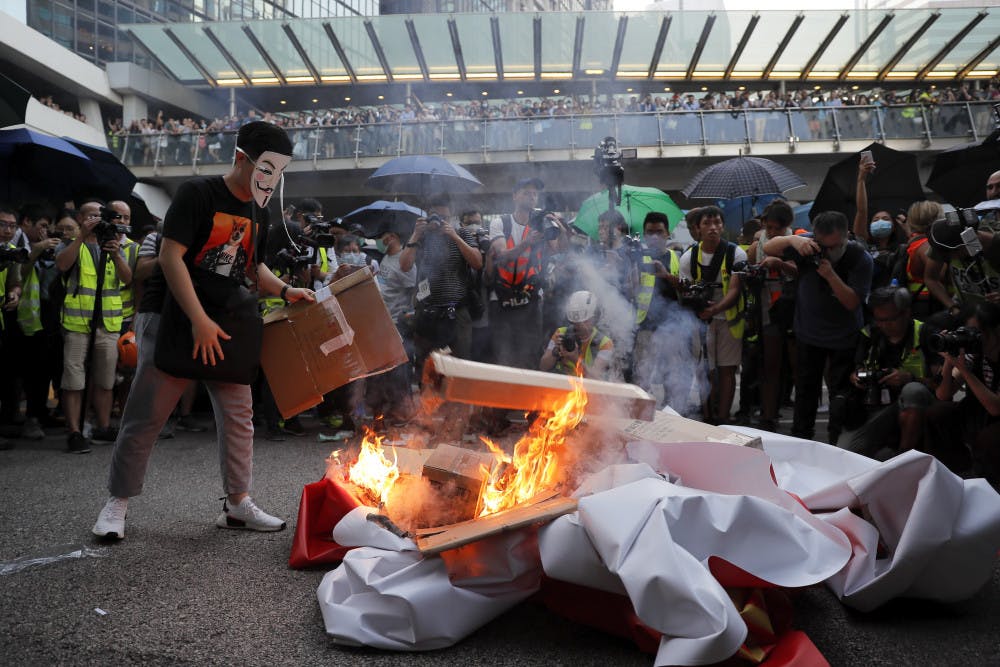It’s dangerous to care.
In thenited States, we often tend to associate danger with the increased frequency of mass shootings or hate crimes that are provoked by a variety of factors. However, although we have experienced great hardships as a population, many of us don’t know what it’s like to put our lives on the line for a cause. Unfortunately, this may change soon.
Across the globe, journalists and activists are being injured or killed for standing up for what they believe in. On June 28, 2018, five people were shot dead at the Capital Gazette Newsroom in Annapolis, Maryland, over a defamation lawsuit from 2012. Four of them were journalists, one of them was an Alligator alumnus and none of them were directly responsible for “defacing” the gunman. Now more than ever, it seems like you can’t be completely safe anywhere.
Despite tragedies like this, compared to some other countries, the U.S. is regarded as a safe place for journalists.
According to the Committee to Protect Journalists, between 1992 and 2019, only 14 journalists were killed in the U.S. On the other hand, 116 journalists were killed in Mexico, and this number is increasing. On Saturday, a National Geographic journalist was shot in Juárez, Mexico, while interviewing a drug dealer. While this attack was not aimed at the journalist, other journalists pursuing stories about corruption and human rights are often targeted for their involvement. And now, even people outside the field are being targeted.
Activists from around the world are being killed while fighting for their causes, and it seems like the people who are supposed to protect them in the first place are causing this.
Protests can be dangerous places as well. Another unfortunate event occurred Saturday, when the death toll in an anti-government protest in Iraq reached nearly 100 people. More than 3,000 people had been injured as of Saturday, and the police continue to use live rounds in an effort to control the crowd.
Maybe if governments started listening to their people, police forces wouldn’t resort to using bullets.
Unfortunately, it seems more than one country is having hearing issues. This past Tuesday, a Hong Kong police officer shot a protestor in the chest with a live round. This came after months of protesting, and ironically, it came on the same day that China celebrated 70 years of communist rule. Leave it to the Chinese government to show its strength by harming someone who wants to leave it.
Could it be that the Chinese government has some dependency issues? Maybe. Does that mean it gets to harm the people that it’s supposed to protect? Of course not. We’ve all had some difficult relationships, but most of us know when it’s time to let go.
In the case of “who hurt who first,” protesters aren’t exactly guilt-free. In both China and Iraq, protestors have been using violent tactics in order to get the attention of their government. In Iraq, demonstrators have set fire to the headquarters of six different political parties. In China, they have vandalized many subway stations or stores that appear to be pro-government.
Despite this, the amount of violence used against protestors is concerning. In Iraq, authorities have accused an unidentified sniper of shooting into a crowd of protestors. In China, a taxi driver drove into a crowd of protesters, and a man was beaten by a mob afterward. In both cases, it seems like citizens tried to enact justice based on their own ideals, but they took action in radical ways.
The world is a dangerous place when you have an opinion. If you choose to fight for something you believe in, make sure you’re prepared for the cost.
The Editorial Board consists of Zora Viel, Opinions Editor; Amanda Rosa, Editor-in Chief; Kelly Hayes, Digital Managing Editor; and Tranelle Maner, Engagement Managing Editor.
A masked protester sets fire to a China 70th anniversary celebration banner in Hong Kong, Friday, Oct. 4, 2019. Hong Kong Chief Executive Carrie Lam announced that protesters are banned from wearing masks to conceal their identities in a hardening of the government's stance against the 4-month-old demonstrations. (AP Photo/Kin Cheung)





![Photo of the missing Leachianus “Leachie” gecko. [Photo courtesy of Mike Southwick]](https://snworksceo.imgix.net/ufa/907bd92a-0b29-40eb-a5fb-d7db7cf98b2f.sized-1000x1000.jpg?w=1500&ar=16%3A9&fit=crop&crop=faces&facepad=3&auto=format)
